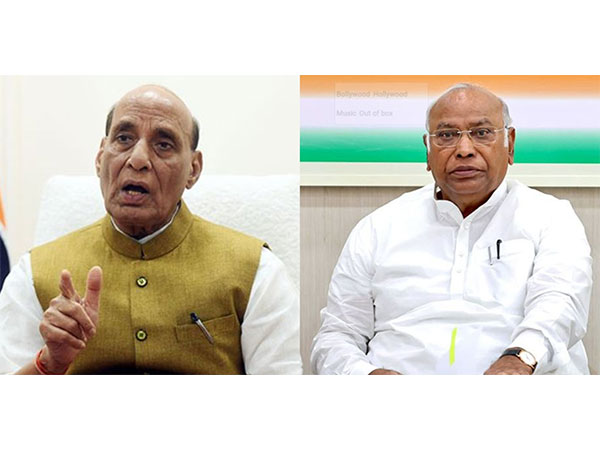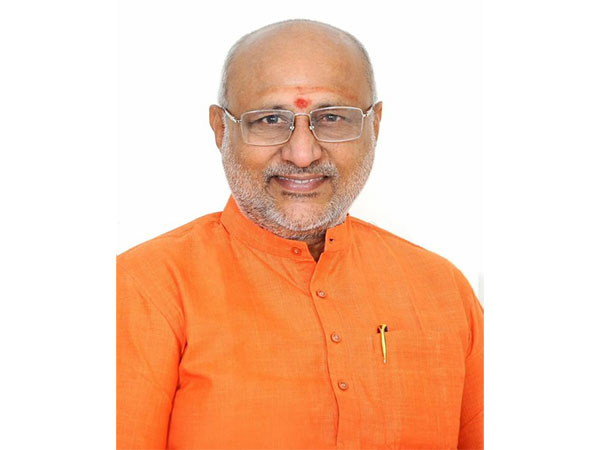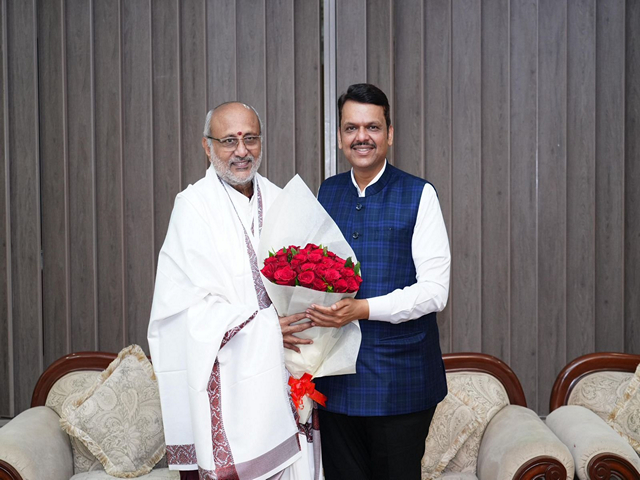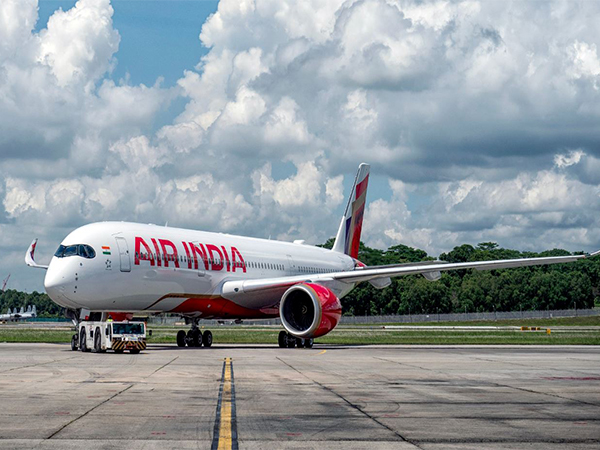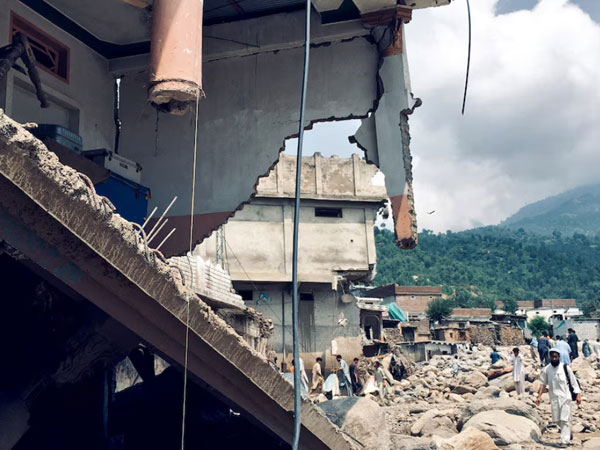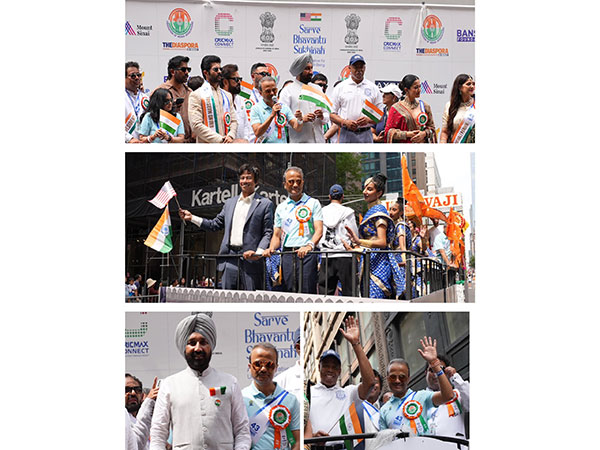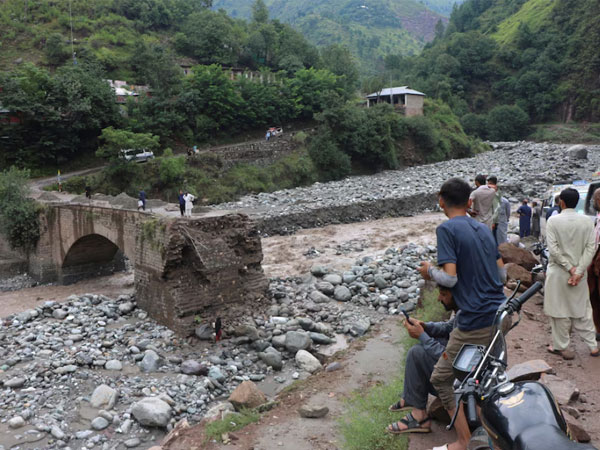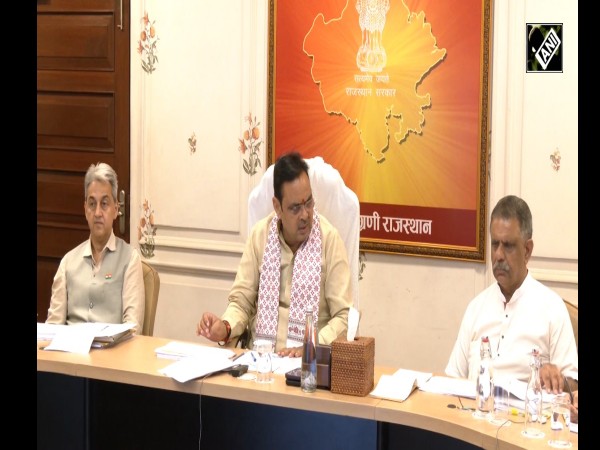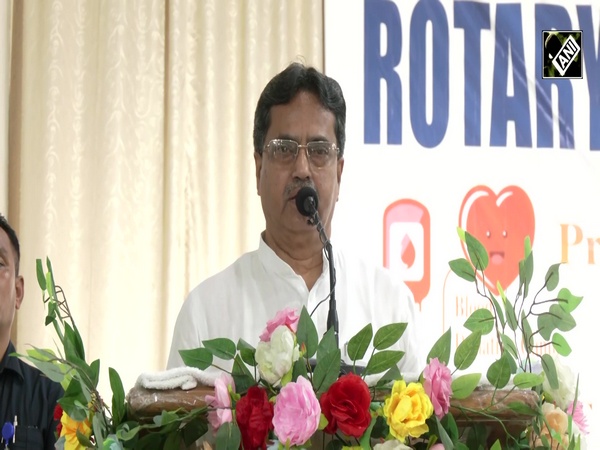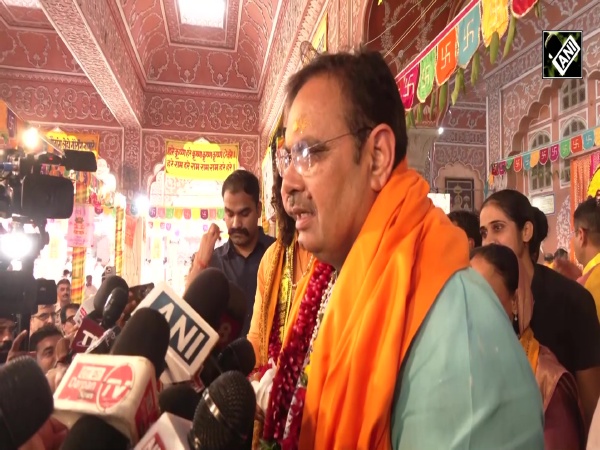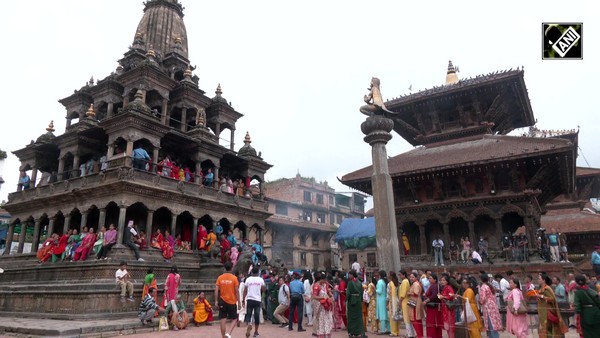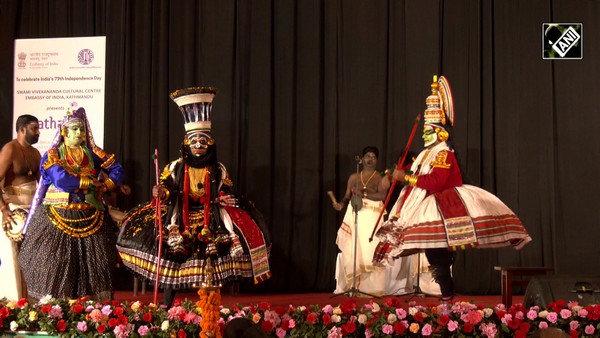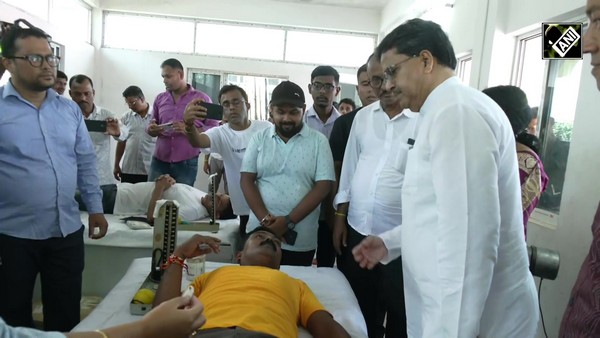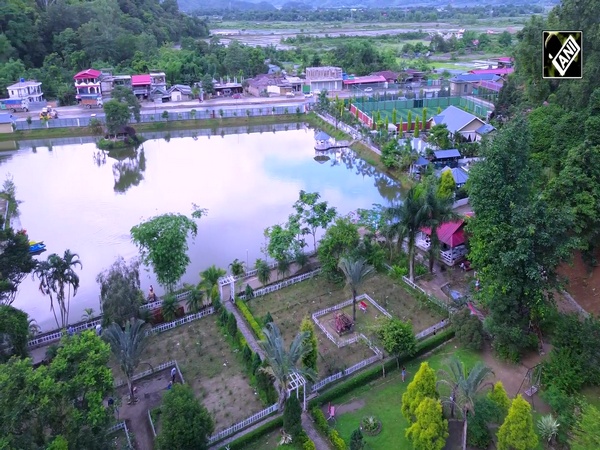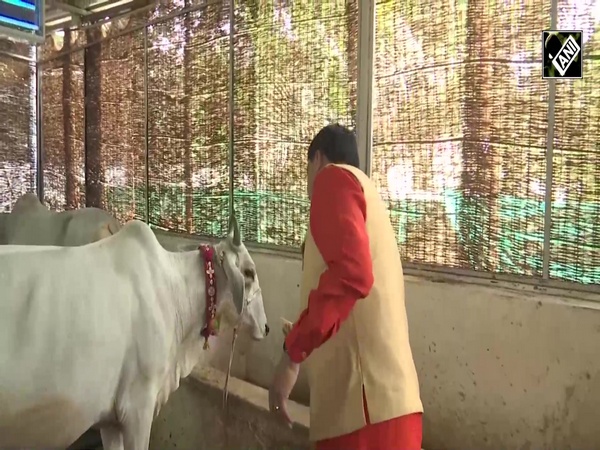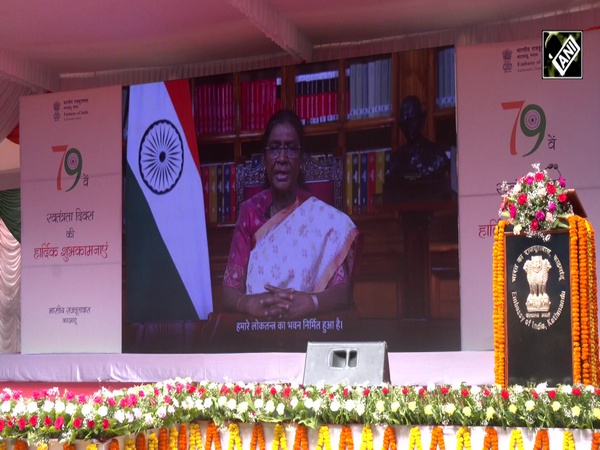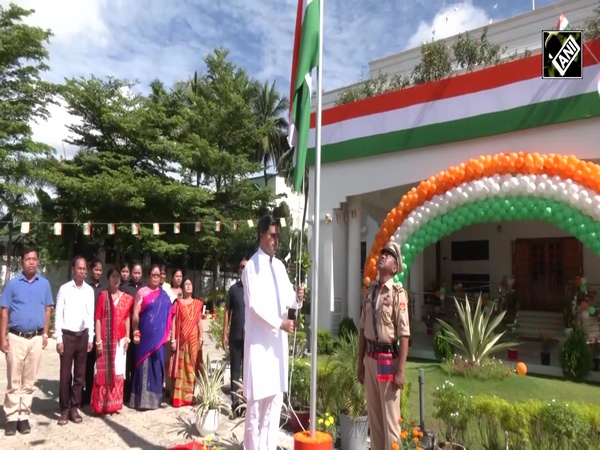'Mann ki Baat' created a mass movement, spurred community action, boosted sustainable development efforts: Report
Apr 29, 2023

New Delhi [India], April 29 : PM Narendra Modi's 'Mann ki Baat' created a mass movement, spurred community action, boosted sustainable development efforts, says a recent report by the Institute for Competitiveness (IFC) in partnership with Axis My India and Bill and Melinda Gates Foundation on the impact of the monthly radio show that began in October 2014.
Speaking to ANI, Dr Amit Kapoor, chairman of the Institute for Competitiveness said, "This was a very unique exercise that we wanted to do. Unique for a very simple reason that there is this radio show which was done by the Prime Minister of the country and this was something which was being done after a gap of about 50 to 70 years. In fact, the only other person who would have done a radio show before this was Franklin D. Roosevelt. There is this very unique experiment that is happening wherein you can create a conversation with the citizens of the country. So it made a very huge sense for us to see how this impact. Is it just something that is happening off the cuff or is this something that can bring change? And we did find some very unique things as we were going along, there were five key things that we did see".
Mann ki Baat has brought a huge behavioural shift in people be it cleanliness, sanitation, or vaccination and this all came about with the kind of conversations that the Prime Minister was doing. It allowed citizens to see what is it that is happening around the world. The conversation was very simple. It was a personal conversation that the Prime Minister was doing, and it was about practical subjects that matter, something that mattered to us daily, Kapoor said.
Speaking about the analysis of the report, Kapoor said, "We looked at all the 99 episodes, we read it very thoroughly. We did some qualitative and quantitative analysis on it wherein we tried to understand what is the kind of conversations or words that are popping up now and then can we identify some of the prominent themes that were being discussed? The themes that we identified were Cleanliness and Sanitation, Health, Wellness, Water Conservation, and Sustainable Development. He was bringing that public action. There was one very important factor that he was pushing people towards what you would call is lifestyle for the environment and this was propelling people to make the change".
Speaking on sustainable development goals, Kapoor said, "We were just trying to look at what are the kind of sustainable development goals that India is looking at or how is it moving and we did a study wherein we wanted to understand as to in 2017, what was the achievement of SDGs in India and in 2022, what is the achievement of SDGs. So what we see is that India has moved quite a bit ahead on the SDG goal achievement, and there's not that only this conversation was helping, there were a lot of other things that were happening, but this SDG goals or the importance of the movement of people involvement of people just improved that achievement towards a goal. So, rather than just the governmental machinery doing things, it was citizens also started getting involved. So it also gave me a very huge sense of possibility as a citizen that I can also contribute. It is not just about simple, only the government will have to do it. It also gave me a realization as a citizen, that I also have a role to play in national development. So that is where people started getting empowered".
Earlier democracy was a one-way street and now it has become more like a two-way street. There were principles in Mann ki Baat as 5Cs- Citizen engagement, connecting with the masses, cultural commitment, catalyzing collective actions, and celebrating change-makers. Within this conversation, the most important is, as I see it, that India is improving. This was a very interesting thing in terms of saying how we improve the quality of life of people by understanding their requirements, their needs, their challenges, and how we can use people in creating those movements. And this is where this whole story of a Mann ki Baat is, Kapoor added.
Pradeep Gupta, Chairman and Managing Director, Axis My India in his quote said, "The key objective of our research was to understand the Impact of Mann Ki Baat on Indian citizens and if PM Modi has been able to uplift the collective spirit of a nation through the concept of Jan Bhagidari. A mixed methods research design was adopted by us where data was collected through quantitative and in-depth interviews with change-makers across the length and breadth of the country".
Information was gathered through observation research by watching people, and events, and noting physical characteristics in their natural settings. Our study reveals that the Prime Minister's voice and ideas, using the power of radio, are creating mass movements, driving a social behavioural change of a scale that we have never witnessed before. He is inspiring and energizing citizens not only on social, cultural, and economic issues but also on difficult problems that the country and the world are facing today, such as waste management, energy crisis, cleanliness, etc, Gupta added.
Archana Vyas, Deputy Director, Policy, Communications and Behavioural Insights at Bill and Melinda Gates Foundation said, "Both our partners Institute for Competitiveness as well as Axis My India looked back at all the 99 episodes of Mann Ki Baat, a thorough analysis of what are the themes that have been highlighted by Prime Minister on the platform have been analyzed as well as going back and tracing back some of the people who've been very nicely profiled in these episodes have been traced back to look at the impact it did generate any sort of impact".
So I would say that there are two or three things that are particularly standing out from the research that has been done by IFC as well as Axis My India. One is the fact that this is a unique platform. It's reached out to both rural and urban populations effectively. India is a diverse country. We have many people who do not have access to media but they were still reached by the radio platform, but also the use of both traditional as well as digital platforms has been particularly unique. It has been transformational, Vyas said.
More than 23 crore people have watched every episode of Mann Ki Baat, more than 40 crore people have tuned into many episodes of Mann ki Baat, and 100 crore people have watched at least one of the episodes of Mann ki Baat. Now, this kind of reach in a diverse country like India is truly exceptional. I think it is a case study or it should be a case study. The second thing that I would say is the fact that these two studies have shown that it has not just been a platform for outreach or a platform for messaging, it has spurred community action, she added.
Community action is really important because of the work that we do at the Bill and Melinda Gates Foundation. We work on issues of health, urban sanitation, digital financial inclusion, as well as women's economic power, and agriculture. And we've seen through the case studies that were traced back that communities have adopted at the clarion call of Prime Minister, they've taken on the action, and that tends to be motivational because there is an element of positive deviance, people who've stood out and take an action. They have taken action against the situation that they are facing in the community, but still, they are motivated to take action. And since they have been profiled by the Prime Minister, it leads to huge motivation within the community, and what we've seen is this community action can therefore be sustainable because of community adoption and the progress can be sustainable as well, Vyas further added.
We know that the sustainable development goals have taken a hit back because of the pandemic. So, therefore, it is important while they would be top-down policies, communities need to adopt and take action themselves for the services and provisions that the governments provide. And I think this platform has been catalytic in spurring adoption, as well as action, Vyas told.
